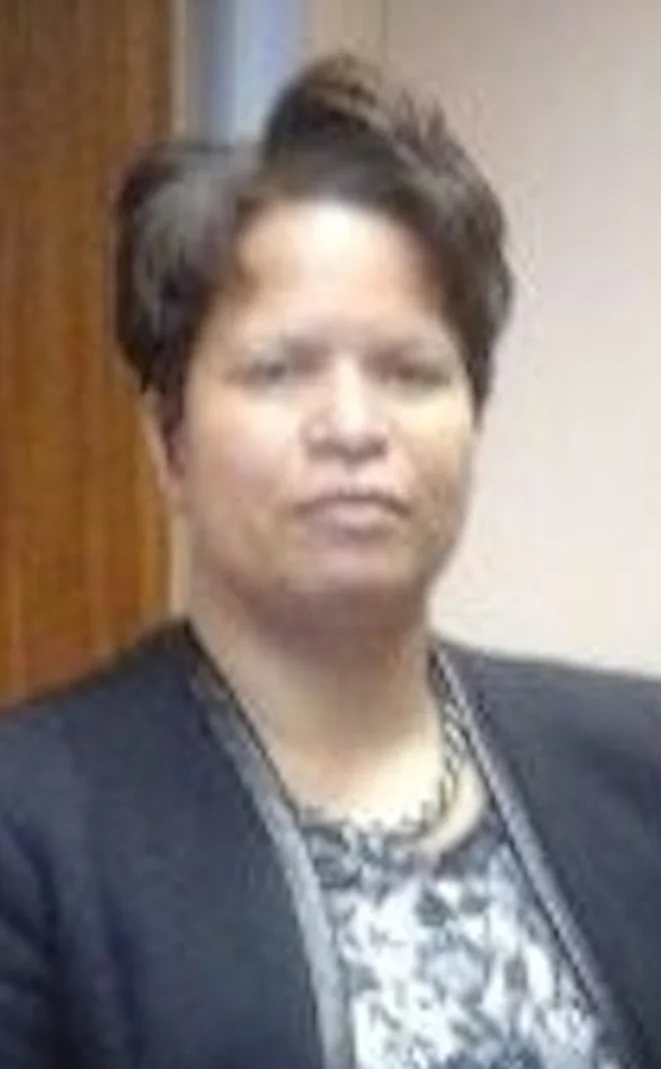Dr Eneka Idiart-Barsoum
Eneka Idiart-Barsoum. Personal photo supplied by Dr Idiart-Barsoum
““I think one’s late 30’s-early 40’s are the toughest for women because many have small children to deal with and in parallel they are being given increasing responsibilities at work””
Industry
Eneka Idiart-Barsoum is a specialist in optronics and, more specifically, lasers. So, when she tells me that she got there because of her passion for music I'm taken aback. She laughs. “When I passed my science baccalaureate at the age of 17 I really wanted to be a sound engineer,” she explains “and so I sat the competitive exam to get into the École Louis Lumière [editor's note: at the time the only cinema, photography and sound school in France] even though you were supposed to have at least two years of further education before sitting this exam.” There were 25 places for 1,000 candidates. She failed.
But, as she'd come to Paris from her hometown, Bayonne, in the south-west, she thought she would stay and study maths, physics, chemistry and computer science at the Jussieu branch of the University of Paris.
“The Erasmus programme had just started and so I was able to spend the 1990/91 academic year at the University of St Andrews in Scotland,” she recounts. “I adored the Anglo-saxon system: it's far less school-like than French universities. I loved the tutorial system and how easy the lecturers were to approach compared to our professors in Paris. It was in St Andrews that I learned to work on my own...and to do Scottish dancing!” she says delightedly.
Back in Paris she signed up to continue her studies in acoustics and optics. On a waiting list for the acoustics class, she opted to take up the place she'd been offered for a “laser and matter” class. “We were six girls and 34 boys in that class,” she remembers “and we studied non-linear optics, the physics of lasers, and the interaction between lasers and matter. But what I prefered was opto-electronics. I graduated 10th of the class which allowed me to get a grant to do a doctoral thesis on laser diode arrays.”
She obtained her doctorate in May 1996, just eight months after getting married. “So I took a few months off and then got a job with Corning in Avon [near Fontainebleau] where they had their biggest laboratory outside the United States and were concentrating on developing photonics* for the telecommunications industry.” But in 2001 the telecoms bubble burst and Corning had to let go 150 of its 230 staff in Avon, including Eneka.
“The biggest sector that used photonics outside the telecoms industry was defence and Corning really helped us to set up meetings with potential employers. That's how I ended up as head of the COMETE laser weapon system programme at CILAS.” The company is now co-owned 63% by the ArianeGroup [Airbus and Safran] and 37% by Areva.
“COMETE was a research project to develop a countermeasure that would render opaque the camera lenses carried by helicopters. There were five elements to this project: we had to detect the helicopter using thermal imagery; we had to determine it using optics; point at it with a laser; follow it and then strike. We validated all these elements and then the project was stopped in 2009.”
Defence was new to her, so how did she feel, about working in that sector? “I was not developing a weapon. My work involved countermeasures and detection,” she says, “so that was OK. But I did find that moving from a very international group like Corning to a team entirely made up of French nationals – a necessity because we all had to have confidential defence accreditation – was strange and one has to get used to working in secret. This constraint means that we couldn't even exchange figures between the team leaders because the figures were classified!”
She was the only female programme manager at CILAS for 10 years and her teams were almost entirely male.
But CILAS is based in Orléans. “When I took the job I had two toddlers and my husband was still running his restaurant in Fontainebleau so we only saw each other for a day and a half every week. I had no family around, but thank goodness I had a really nice neighbour who was really helpful. It was really tough,” she sighs.
“I think one's late 30's-early 40's are the toughest for women because many have small children to deal with and in parallel they are being given increasing responsibilities at work.” She openly admits that this difficult situation led to a burnout “but I survived”.
Eneka was on the CILAS board of directors for five years.
Today, she runs her own company, Eneka Consulting. “I help leaders in the defence, security, mobility, agriculture, agribusiness and health sectors to build a strategy of innovation, to set up research collaborations and to get financing.” She's also on the board of Photonics 21 which directly influences European policy in photonics.
* Photonics is the physical science of light (photon) generation, detection, and manipulation through emission, transmission, modulation, signal processing, switching, amplification and sensing.




